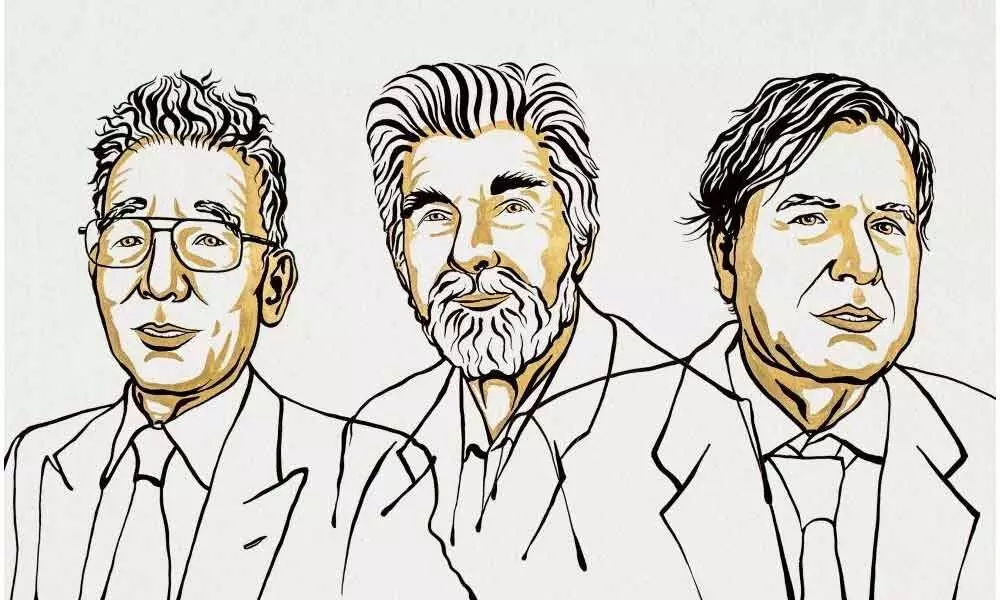Climate science breakthroughs earn Nobel for 3 in physics

Climate science breakthroughs earn Nobel for 3 in physics
Three scientists won the Nobel Prize for physics on Tuesday for work that found order in seeming disorder, helping to explain and predict complex forces of nature, including expanding our understanding of climate change.
Stockholm: Three scientists won the Nobel Prize for physics on Tuesday for work that found order in seeming disorder, helping to explain and predict complex forces of nature, including expanding our understanding of climate change.
Syukuro Manabe, originally from Japan, and Klaus Hasselmann of Germany were cited for their work in "the physical modeling of Earth's climate, quantifying variability and reliably predicting global warming."
The second half of the prize was awarded to Giorgio Parisi of Italy for "the discovery of the interplay of disorder and fluctuations in physical systems from atomic to planetary scales." All three work on what are known as "complex systems," of which climate is just one example.
The prize goes to two distinct types of physics that are opposite in many ways but share the goal of making sense of what seems random and chaotic in such a way that it can be predicted.
Parisi's work centers around subatomic particles and is somewhat esoteric and academic, while the work by Manabe and Hasselmann is about large-scale global forces that shape our daily lives.
The judges said Manabe, 90, and Hasselmann, 89, "laid the foundation of our knowledge of the Earth's climate and how human actions influence it.
Starting in the 1960s, Manabe, now based at Princeton University in New Jersey, demonstrated how increases in the amount of carbon dioxide in the atmosphere would raise global surface temperatures, laying the foundations for current climate models.
About a decade later, Hasselmann, of the Max Planck Institute for Meteorology in Hamburg, Germany, helped explain why climate models can be reliable despite the seemingly chaotic nature of the weather. He also developed ways to look for specific signs of human influence on the climate.
Parisi, of Sapienza University of Rome, "built a deep physical and mathematical model" that made it possible to understand complex systems in fields as different as mathematics, biology, neuroscience and machine learning.
His work originally focused on so-called spin glass, a type of metal alloy in which the atoms are arranged in a way that changes the material's magnetic properties in apparently random ways that baffled scientists.
Parisi, 73, was able to discover hidden patterns that explained this behavior, theories that could be applied to other fields of research, too.
In their work, the physicists used complex mathematics to explain and predict what seemed like chaotic forces of nature in computer simulations, called modeling.














